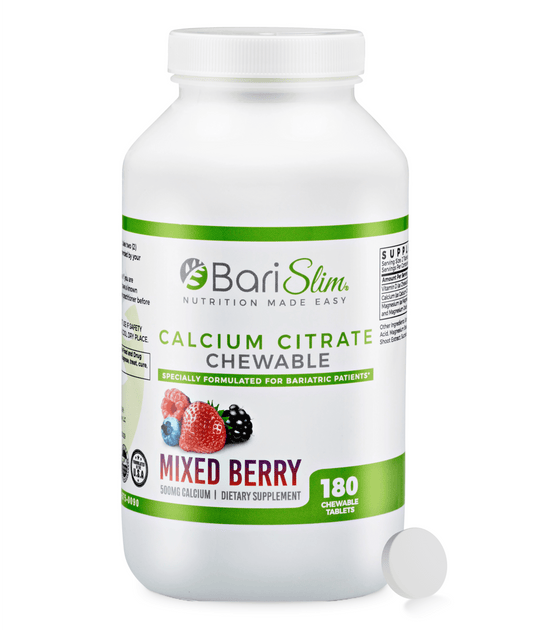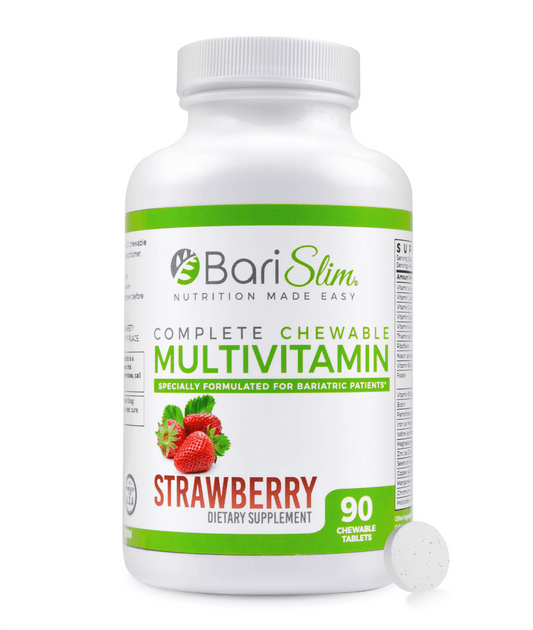Introduction
The gastric sleeve post-op diet matters, and cheating on it can lead to discomfort, pain, and even failure of your procedure. Your new way of eating will demand that you balance the limitation of calories with the demand for appropriate nutrition and protein. Since you will not be able to eat as much, your food choices must be highly nutritious and filled with vitamins and protein.
Over time, your new dietary outlook will become second nature, but it takes time for new habits to develop. As you re-learn how to eat, remember that following the path leads to an average weight loss for gastric sleeve patients of 70 percent of the excess weight. Maximize your weight loss by eating according to the plan provided and exercising regularly to make your gastric sleeve well worth the price.
The Basic Rules of Your Gastric Sleeve Diet
- Start a food journal where you log what you eat as well as the caloric and protein intake.
- Embrace mindfulness and slow eating to ensure that food is sufficiently chewed.
- Plan to eat a few calories with limited fat and sugar.
- Design a meal plan with small, balanced portions.
- Avoid using straws, drinking sodas, and chewing ice – all habits that introduce air and cause discomfort.
- Other foods that can cause discomfort include raw veggies, fresh fruit, bread, rice, and difficult to chew meat.
- Limit caloric intake to 300-600 calories the first two months post-op and to 1,000 calories per day thereafter.
- Eat your calories; don’t drink them. All fluids should be calorie and caffeine-free, and extra water or other approved fluids will help you avoid dehydration.
- Avoid all alcoholic beverages.
- Protein should be the staple of your diet. It will help maintain muscle mass, redistribute weight into lean muscle, and eliminate fatty deposits.
- Take multivitamins, vitamin D, vitamin B12, calcium, and other supplements as prescribed. You should crush all pills to maximize absorption and prevent pills from being trapped inside your pouch.
The Progression of a Gastric Sleeve Dietary Plan
The changes that you need to make per your diet will begin even before your gastric sleeve procedure with a pre-surgery diet.
Two Weeks Before the Procedure
Patients who qualify for the procedure likely have fatty deposits in and around the liver, enhancing its size and making gastric sleeve surgery more difficult and dangerous due to the liver’s proximity to the stomach. A liver-shrinking diet for your gastric sleeve procedure should begin two weeks prior to the surgery. This diet will be very strict, limiting carbs and calories drastically by focusing on lean protein, vegetables, and calorie-free fluids. This pre-gastric sleeve diet should adequately prepare your body for a safer surgery and place you on track for a successful recovery and weight-loss journey.
Two Days Before the Procedure
Two days before going in to have your gastric sleeve, a pre-op liquid diet should begin. This diet will consist of the following:
- One sugar-free protein shake per day
- Broth
- Water
- Caffeine-free coffee or tea
- Jell-O
- Sugar-free popsicles
- Avoid all caffeine or carbonation
First Two Weeks After the Procedure
Directly after your gastric sleeve surgery will see a return to the gastric sleeve liquid diet with a gradual transition to thicker liquids. Water is key at this time. Drink 1-1 ½ liters of water or other calorie-free fluids each day. Between each meal you should drink 1 cup of water minimally.
This period should consist of an intake of small amounts of liquid that will easily be emptied from your new stomach pouch. Employ a gradual approach, starting with 1 tablespoon and increasing to 2 when possible. Increase the volume of liquids in this manner up to ½ cup. Bear in mind that you should limit your calories to 400 per day.
Thicker liquids that you might consider during this phase include fat-free or 1% milk, soymilk, sugar free pudding or yogurt, low-fat soups or broths, soupy cream of rice or wheat (no oatmeal), cottage cheese, and protein supplemental drinks.
Weeks 3 and 4 After the Procedure
After two weeks of a liquid diet, you’ll begin adding pureed foods to your diet. In addition to using gastric sleeve friendly, pureed diet recipes, you can use high-protein, low-calorie supplemental drinks.
As you transition back to a more normal pattern of eating, the way you approach food will need to change. Your stomach will be extremely small, holding less than ¼ cup at a time, and the opening for food to pass from the stomach is similarly small. You should limit yourself to a few sips or bites every ten minutes as you adapt to your new anatomy. Failing to eat small and slow will lead to becoming nauseated and in pain.
Suggested softer foods for this period are cottage cheese, hot cereals, noodles, mashed potatoes, applesauce, yogurt, pureed vegetables, scrambled eggs, and other foods that are easily chewed and swallowed.
Month Two After the Procedure
The gastric sleeve diet will change again around week 4 post-op. You should be consuming around 500 calories per day in the form of between six and eight small portion meals. Your food consumption should be ¼ cup at a time, and liquids should be ½ cup.
Month Three to Six After the Procedure
By the end of six months post-op, you should have gradually added food until you’re consuming around 1,000 calories per day with at least 65 g of protein daily. A suggested nutrition plan would include 3 servings of milk and dairy, 3 servings of meat or meat substitute, 1 serving of fruit (no fruit skin or dried fruit), 2 servings of vegetables (thoroughly cooked), and 3 servings of starch (limit bread and rice). Ideally, you should be consuming all the required protein via food instead of continuing to drink protein supplements.
Six Months – and Forward After the Procedure
While you should continue eating between 900-1000 calories every day, at the sixth month mark, you should begin eating three meals and a couple of snacks daily. You should no longer be using protein supplementing drinks and should add more variety to your diet. Plenty of water and the prescribed vitamin regimen should continue to be part of your daily life.
Also Read: Bariatric Food Recipes For Successful Weight Loss Surgery



 Order Free Sample
Order Free Sample





